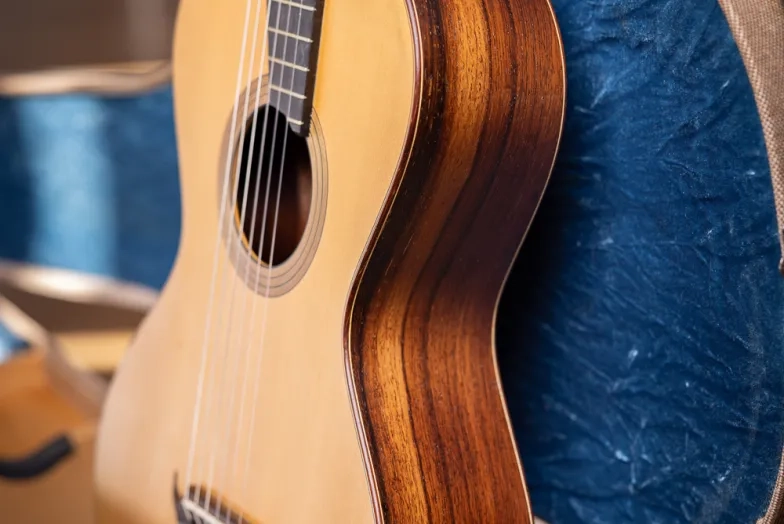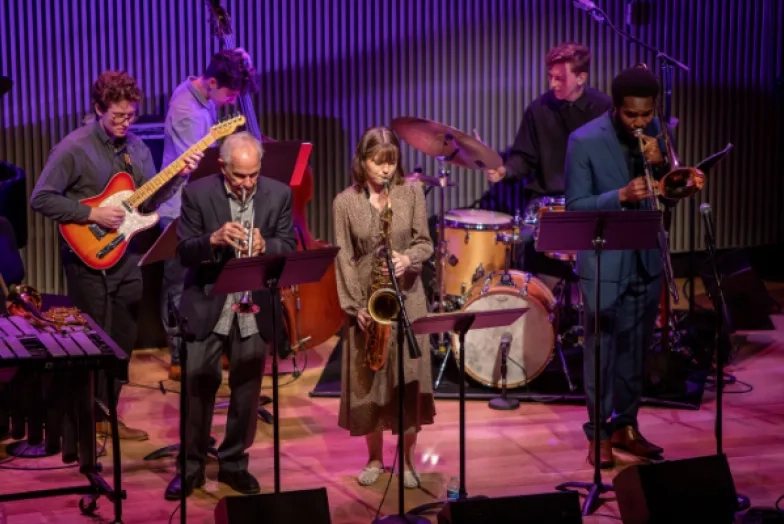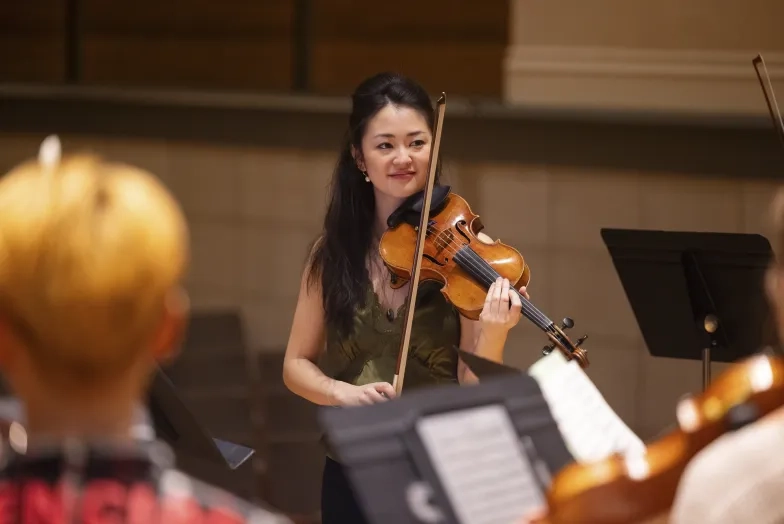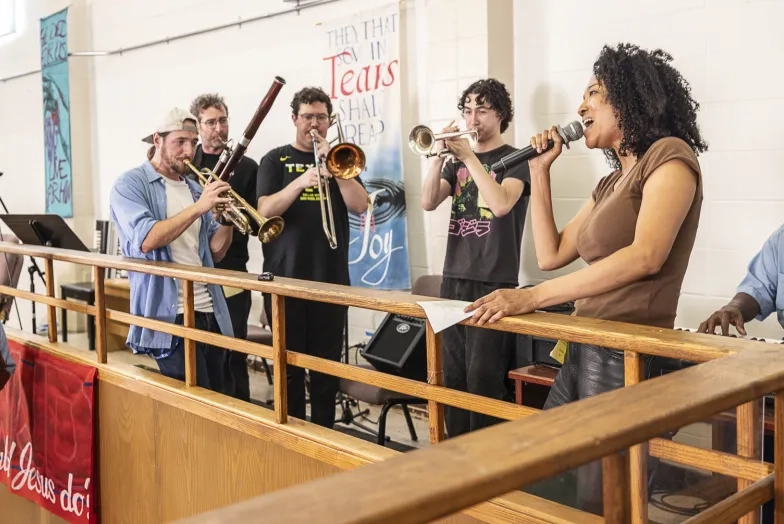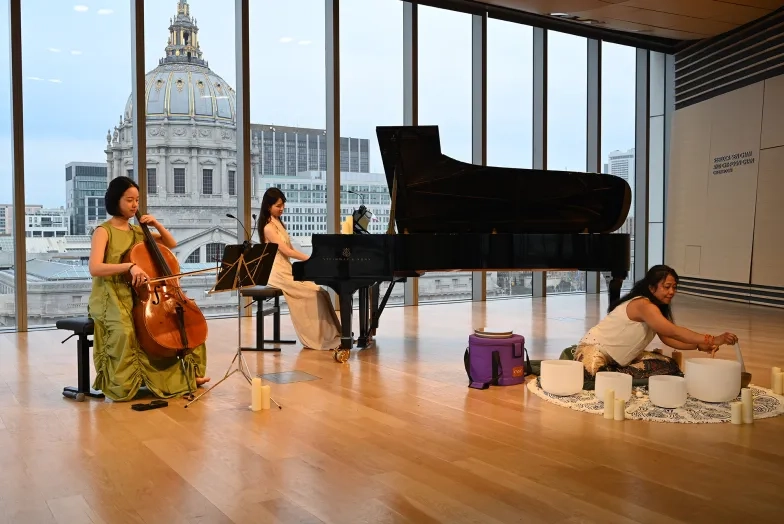Student Recital
Voice
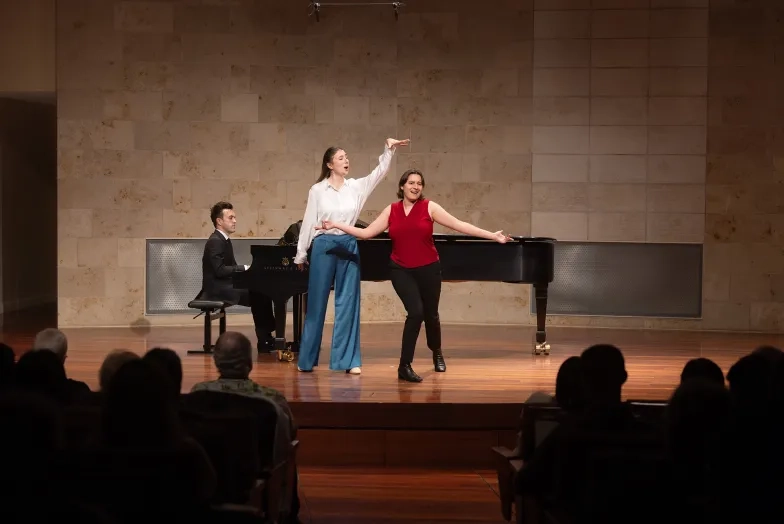
7:30 PM
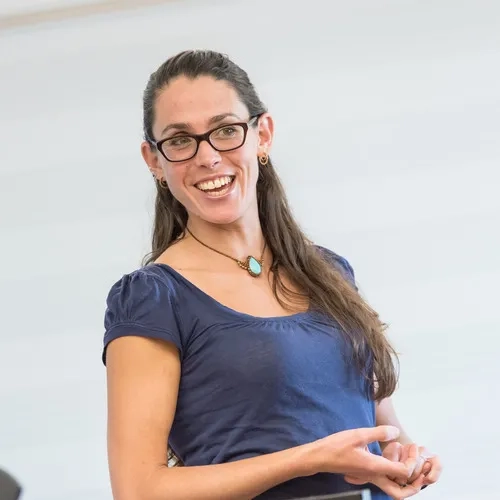
Education
PhD, University of California, Berkeley
MA, University of California, Berkeley
BA, Princeton University, magna cum laude
Awards and Distinctions
Outstanding Graduate Student Instructor
Nicholas C. Christophilis Prize
Finalist, Wiley Housewright Dissertation Prize
Courses Taught
Undergraduate Music History
Nationalism in Music
What is your hometown?
Oakland, CA
What are your favorite recordings?
Budapest Quartet: Bartók Quartets; Miles Davis: Kind of Blue.
What are you passionate about outside of music?
Reading physical newspapers, The New Yorker, and fiction; swimming, running, and hiking; drawing and painting in watercolor.
Who were your major teachers?
Richard Taruskin, Sheli Nan, and amazing high school and middle school teachers.
What is a favorite quote that you repeatedly tell students?
That is not a stupid question. There are no stupid questions. (Not a quote, but true statements.)
What question do you wish students would ask sooner rather than later?
“What can I do to begin this assignment/study for this task?”
What was the defining moment when you decided to pursue music as a career?
When I took a music history and singing class with Anonymous Four (in college).
What was a turning point in your career?
Either when I taught music history for the first time or when I landed on my dissertation topic.
If you weren't a musician or teacher, what do you think you would be doing now?
Writing something, somewhere, or photography.
If you could play only three composers for the rest of your life, who would they be?
Only THREE?! Bach, Schumann, Beethoven.
From a music history perspective, what year and city are most important to you?
New York City, 1964.
What are your academic publications?
"A History of Perspectives on The Occasion of our 50th Anniversary," Perspectives of New Music 50 (1/2): 2012; "“Perspectives and the Patron: Paul Fromm, Benjamin Boretz, and Perspectives of New Music” Journal of the Royal Music Association (Fall, 2017).
What is your unrealized project?
There are so many, but I'm working to realize them.
It was while taking a performance class as an undergraduate that Rachel S. Vandagriff knew she wanted to study music history. As a sophomore in college, she enrolled in an "atelier" course - four were offered every spring semester, each hosted by a practicing artist or artistic group. The class she took was led by the female singing group, Anonymous Four, that specialized in music of the Medieval and Renaissance period. This class, however, was about American sacred choral music, which this group was learning in preparation for a new recording and tour. With these four professional singers, she undertook the study of many different types of American choral traditions, ranging from the music sung in the Appalachian Mountains to African-American spirituals, to the music sung in the first settlements in Massachusetts. It was in this course that Vandagriff realized that studying music history also meant studying politics, class differences, literary traditions, and cultural values, and that the study of these different aspects of musical practice made the experience of perfecting a performance all the richer. Vandagriff went on to major in music at Princeton University, where she also played the harpsichord and was a member of the varsity crew team. She then received her MA-Ph.D. in music history at the University of California, Berkeley, where she specialized in twentieth century music history, both classical and popular. She is currently working on a book about private foundation funding of American classical music from the 1950s-1970s, which will be published by UC Press.

